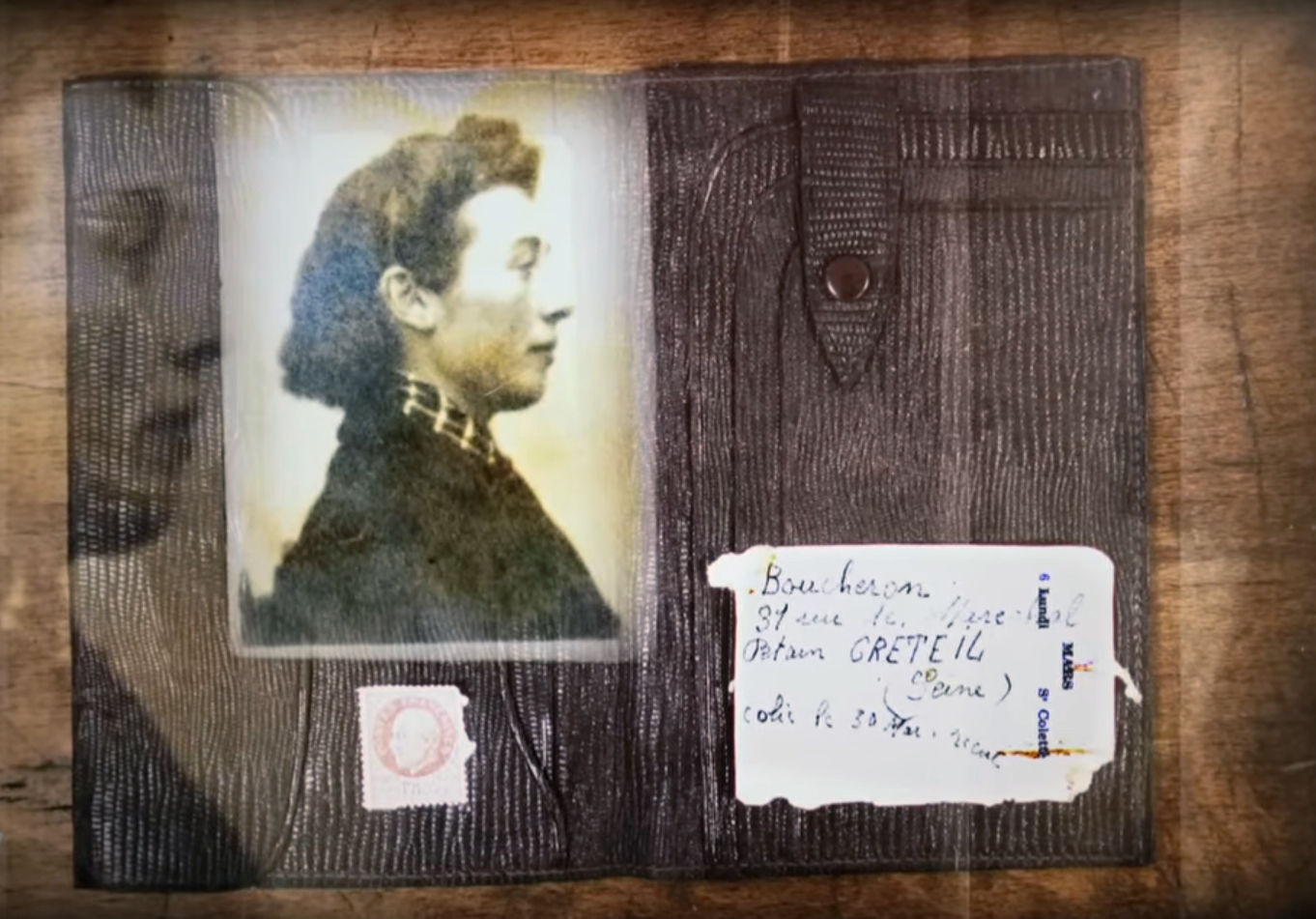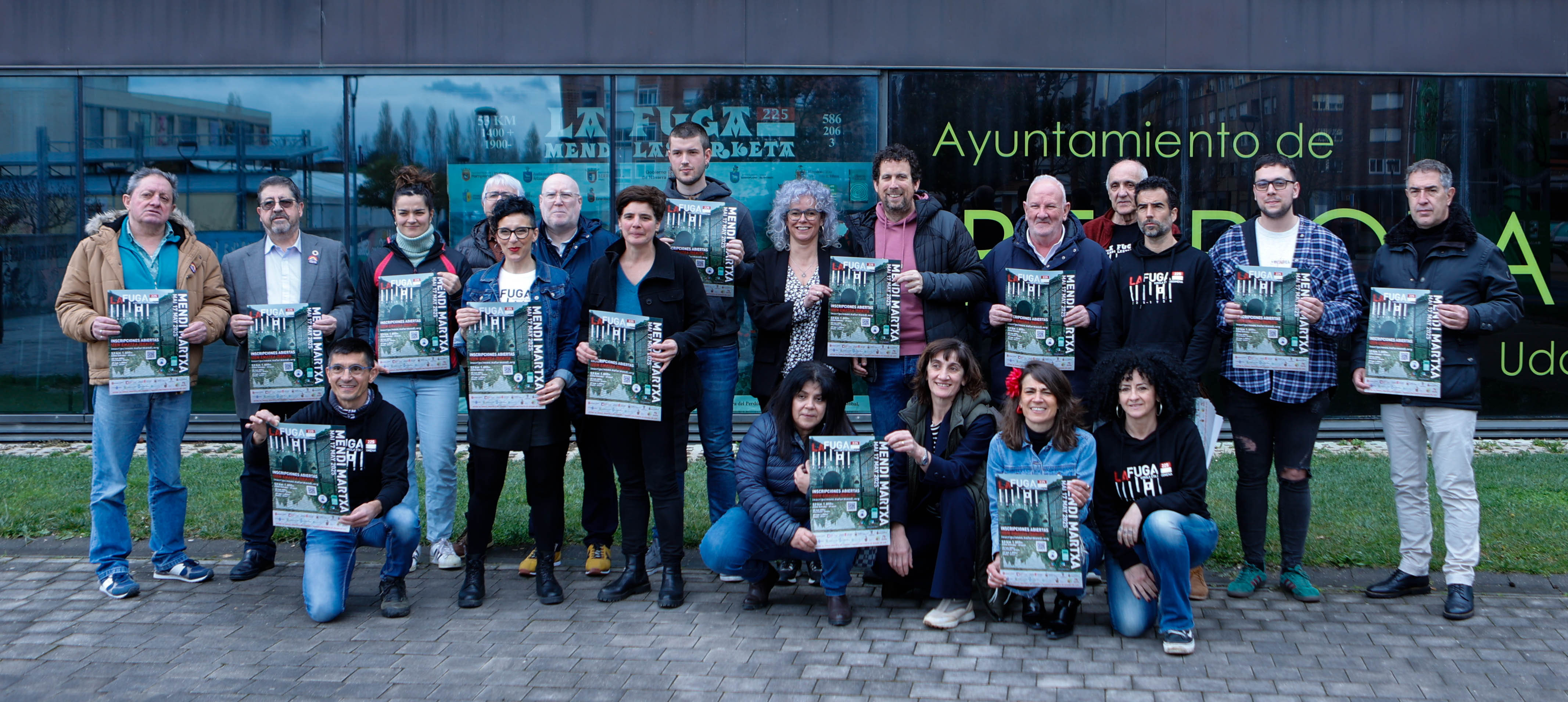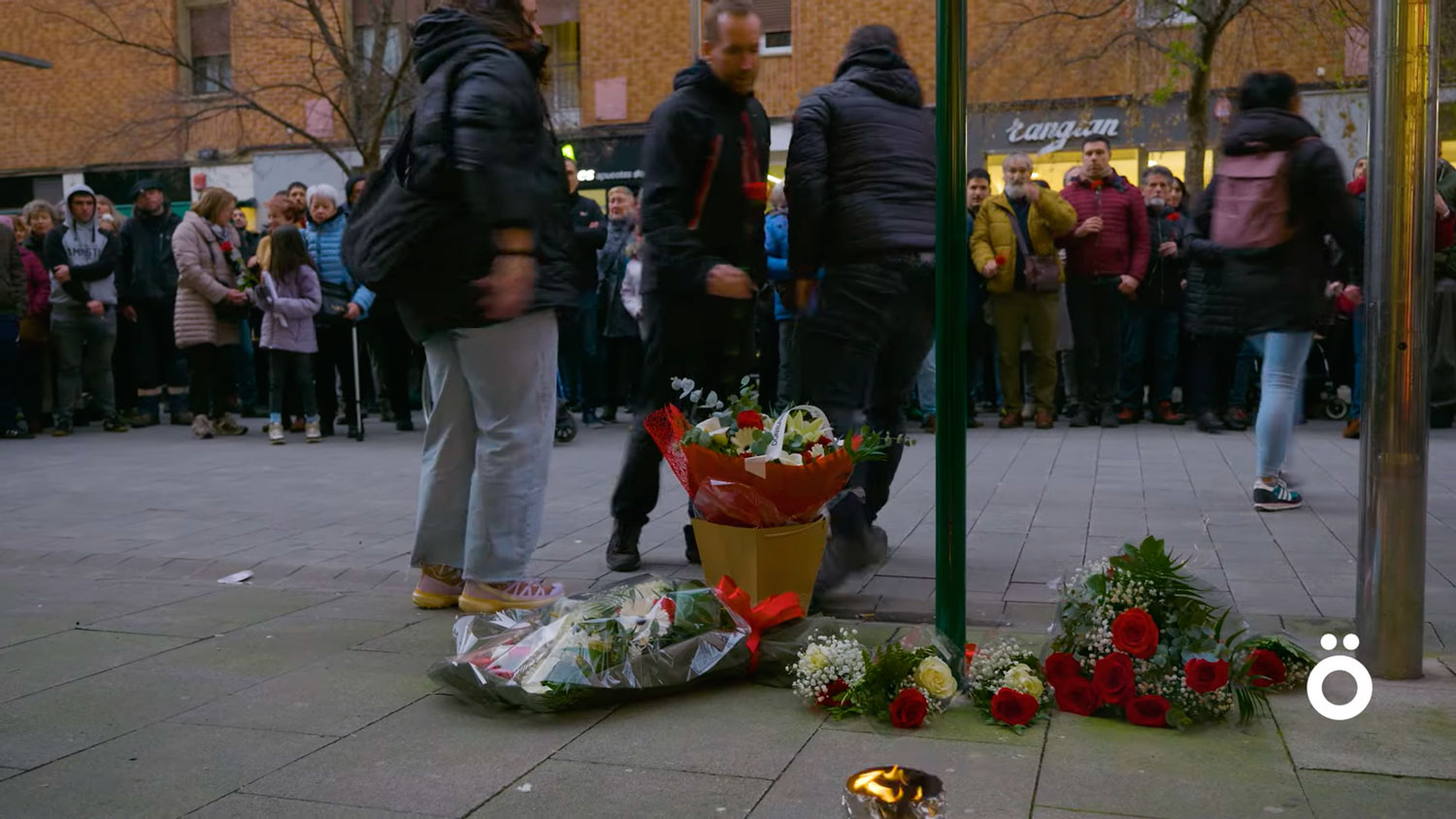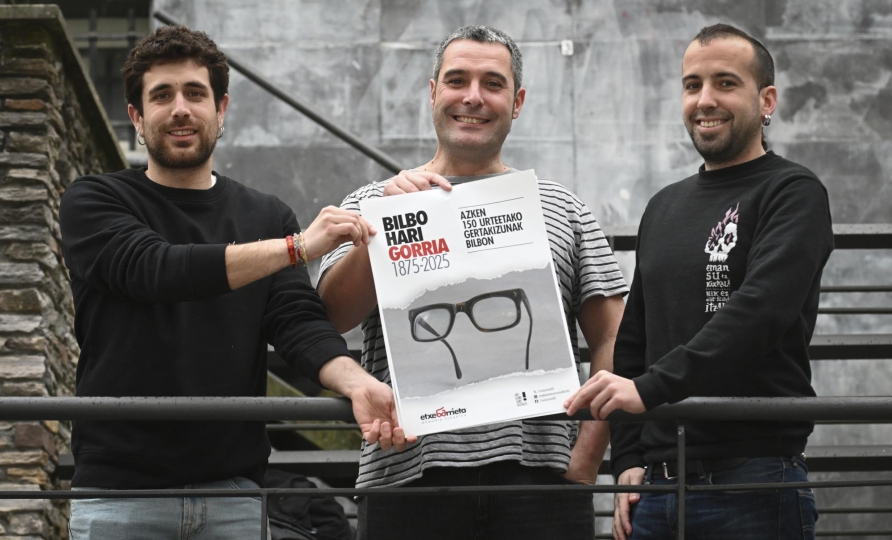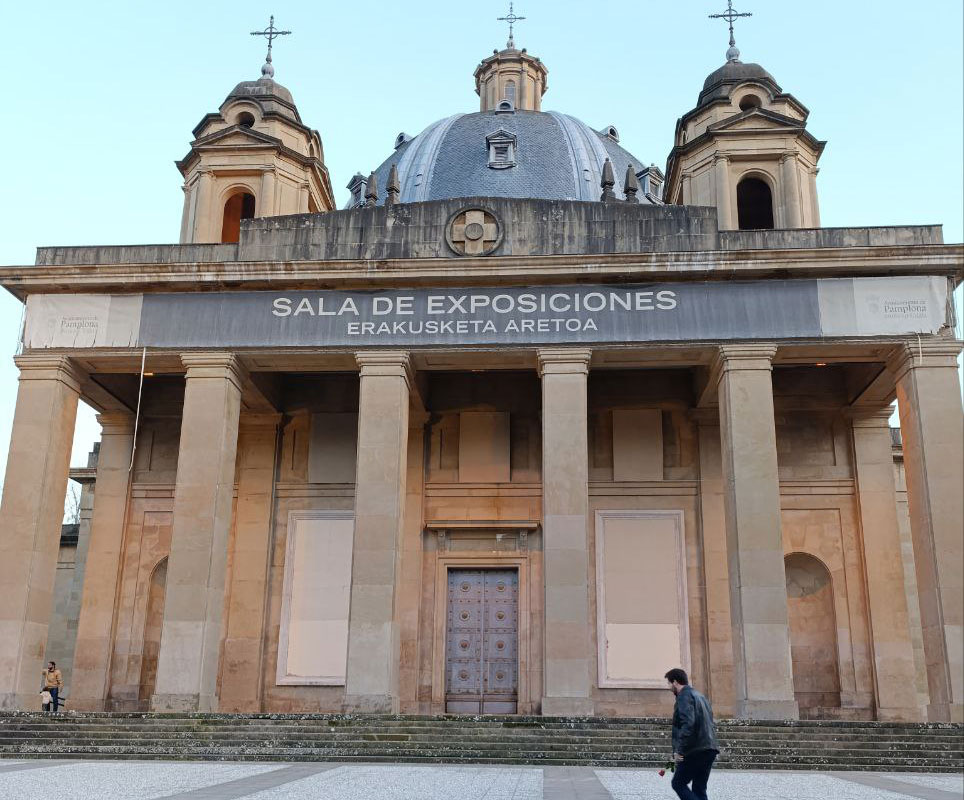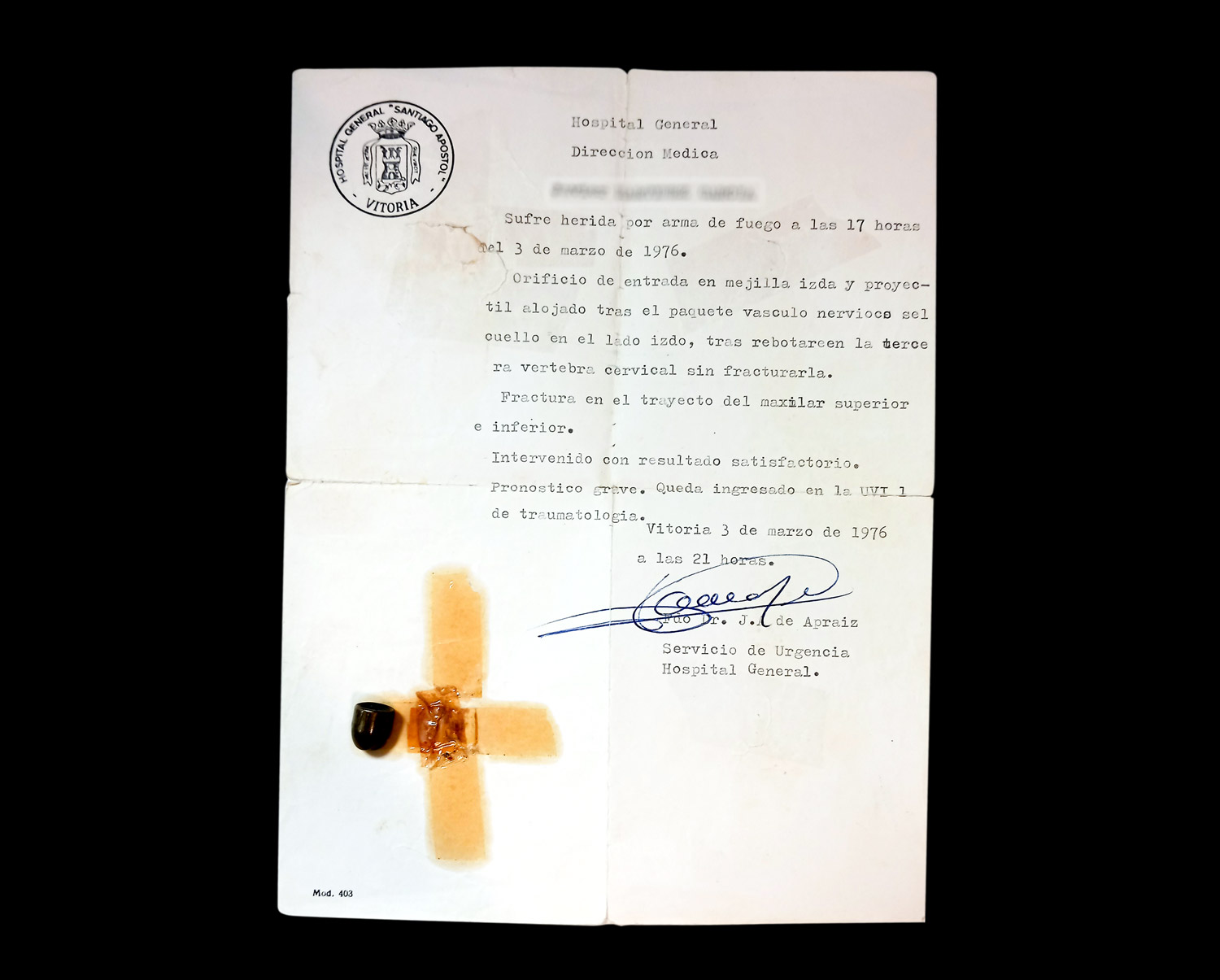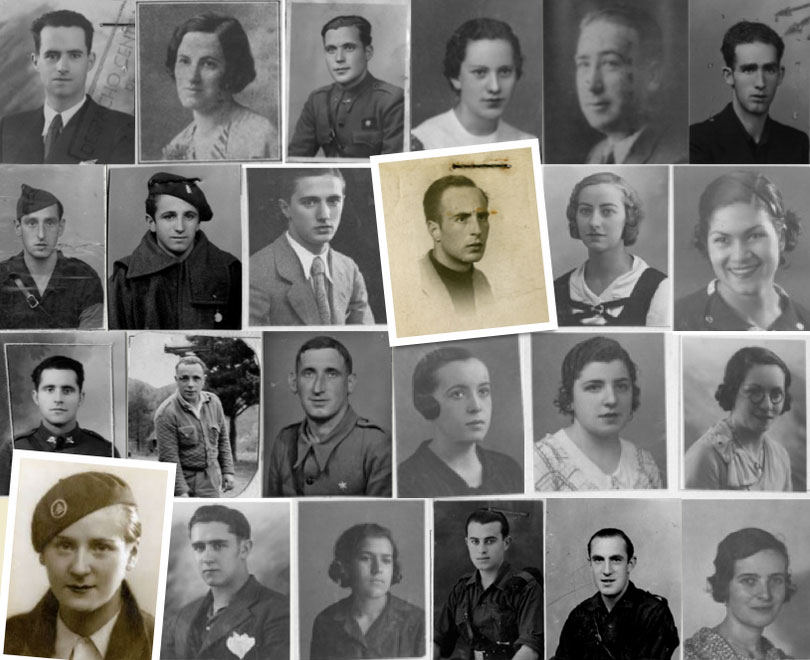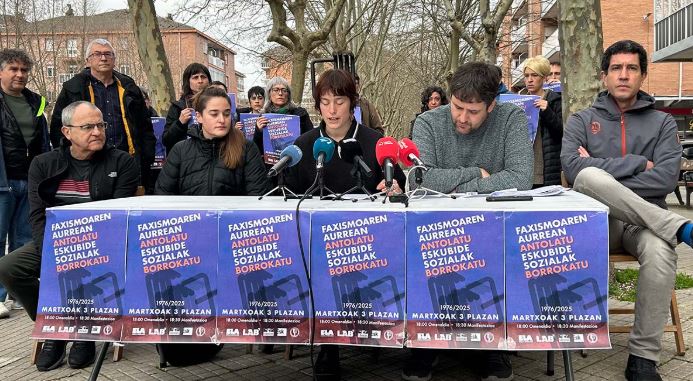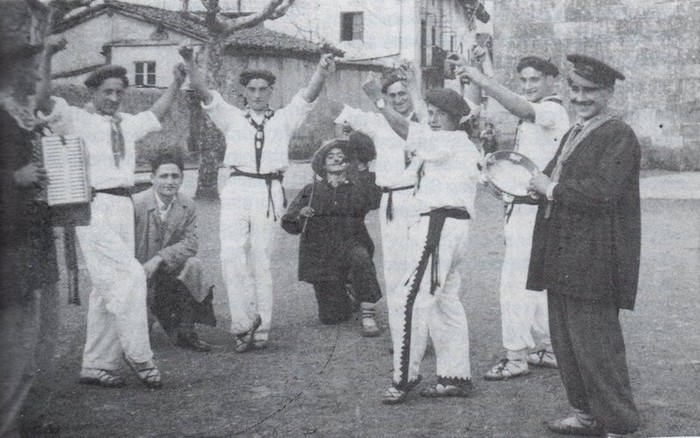A documentary shows the involvement of the Franco regime in the massacre of the deportees of Mauthausen
- The exiled Republicans were handed over to the Nazis by the government of Franco and most of them ended up in that concentration camp. The documentary The Last Spaniards of Mauthausen tells of the relationship between the two fascist regimes and the experiences of the deportees. Tomorrow is 75 years since the liberation of the allied troops in Mauthausen.

In the concentration camp of Mauthausen, located in the Austrian Alps, at least 7,500 Republican deportees ended in the Second World War, of whom more than a hundred were Basque. Two-thirds failed to survive the tragedy, due to hunger, disease, unbearable work, torture and indiscriminate killings.
After 75 years, a documentary has brought to the screen the experiences of those deportees and shows that the Franco regime was very aware of the fate that Spanish Republicans were going to have. According to The Last Spaniards of Mauthausen and the rest of the Nazi camps, carried out by the journalist of Maldonado Carlos Hernández, the German Embassy in Spain asked more than once what to do with the Republicans who were captured in France. Response from Franco: “He didn’t care.”
Some of these deportees were transferred from Angulema to Mauthausen, known as Convoy 927. Unlike the other deportees captured on the war front, all of these families lived and worked in the French city in exile. The men went down in the concentration camp and transferred children and women under fourteen to Hendaia by train, to surrender them to the Francoists. In particular, eleven people remained in Mauthausen.
These efforts were made by the Minister of Government of Spain, Ramón Serrano Suñer, married to Francisco Franco, to whom the German embassy addressed, informing of the “reds” that were in his hands. Argentine lawyer Sophie Thonon-Wesfreid had filed a complaint against him for scientific documents demonstrating her guilt, but Serrano Suñer died in 2003.
In the documentary, Benito Bermejo, a historian who has researched the case of Mauthausen, speaks: “Serrano Suñer was in Berlin and held a meeting with the main people responsible for this type of issue. That’s more than just chance,” he says.

ARGIA Report and Cover
On 5 May, it will be 75 years since the liberation of the Mauthausen camp by the Allied troops. ARGIA has offered this week’s home cover and main story to the “forgotten story” of the Basque deportees transferred to the Nazi camps. According to a last study, 253 people were deported in Álava, Bizkaia, Gipuzkoa and Navarra. But given the global vision of Euskal Herria, there were at least 600, to which must be added the deportees of Lapurdi, Nafarroa Beherea and Zuberoa.
Each year an emotional and multitudinous event is held in the place where the concentration camp was, but this year it has been suspended due to the COVID-19 crisis. On 10 May, however, a virtual tribute will be paid to all victims, organised by the Austrian Committee of MKÖ Mauthausen.
In the Basque Country, Sare Antifaxista, Amical Mauthausen and the La Ilusion de Orereta association, among others, will remember this very important date: “Today more than ever, because of the situation we have in the world, in the face of social and environmental collapse, as well as in the face of the rise of the extreme right and inequalities, we must reclaim the spirit of those deported,” the note states.
Kirola eta oroimena uztartuko dituzte, bigarrenez, mendi-martxa baten bitartez. Ez da lehiakorra izanen, helburua beste bat delako. La Fuga izeneko mendi martxak 1938ko sarraskia gogorarazi nahi du. Ezkabako gotorlekuan hasi eta Urepelen amaituko da. Maiatzaren 17an eginen dute.
Fusilamenduak, elektrodoak eta poltsa, hobi komunak, kolpismoa, jazarpena, drogak, Galindo, umiliazioak, gerra zikina, Intxaurrondo, narkotrafikoa, estoldak, hizkuntza inposaketa, Altsasu, inpunitatea… Guardia Zibilaren lorratza iluna da Euskal Herrian, baita Espainiako... [+]
Gogora Institutuak 1936ko Gerrako biktimen inguruan egindako txostenean "erreketeak, falangistak, Kondor Legioko hegazkinlari alemaniar naziak eta faxista italiarrak" ageri direla salatu du Intxorta 1937 elkarteak, eta izen horiek kentzeko eskatu du. Maria Jesus San Jose... [+]
Familiak eskatu bezala, aurten Angel oroitzeko ekitaldia lore-eskaintza txiki bat izan da, Martin Azpilikueta kalean oroitarazten duen plakaren ondoan. 21 urte geroago, Angel jada biktima-estatus ofizialarekin gogoratzen dute.
Bilbo Hari Gorria dinamikarekin ekarriko ditu gurera azken 150 urteetako Bilboko efemerideak Etxebarrieta Memoria Elkarteak. Iker Egiraun kideak xehetasunak eskaini dizkigu.
33/2013 Foru Legeari Xedapen gehigarri bat gehitu zaio datozen aldaketak gauzatu ahal izateko, eta horren bidez ahalbidetzen da “erregimen frankistaren garaipenaren gorespenezkoak gertatzen diren zati sinbolikoak erretiratzea eta kupularen barnealdeko margolanak... [+]
1976ko martxoaren 3an, Gasteizen, Poliziak ehunka tiro egin zituen asanbladan bildutako jendetzaren aurka, zabalduz eta erradikalizatuz zihoan greba mugimendua odoletan ito nahian. Bost langile hil zituzten, baina “egun hartan hildakoak gehiago ez izatea ia miraria... [+]
Memoria eta Bizikidetzako, Kanpo Ekintzako eta Euskarako Departamentuko Memoriaren Nafarroako Institutuak "Maistrak eta maisu errepresaliatuak Nafarroan (1936-1976)" hezkuntza-webgunea aurkeztu du.








